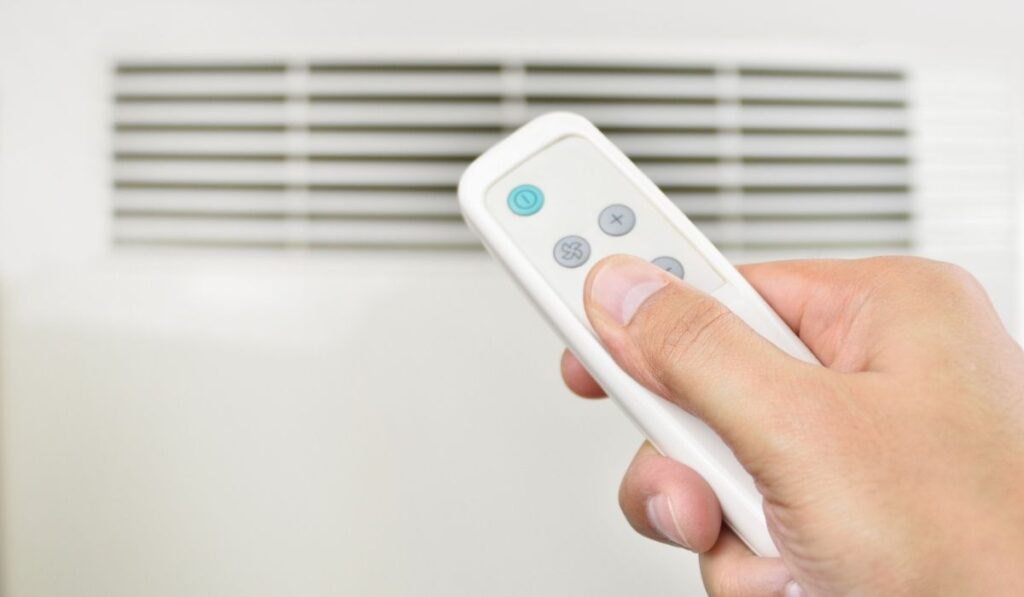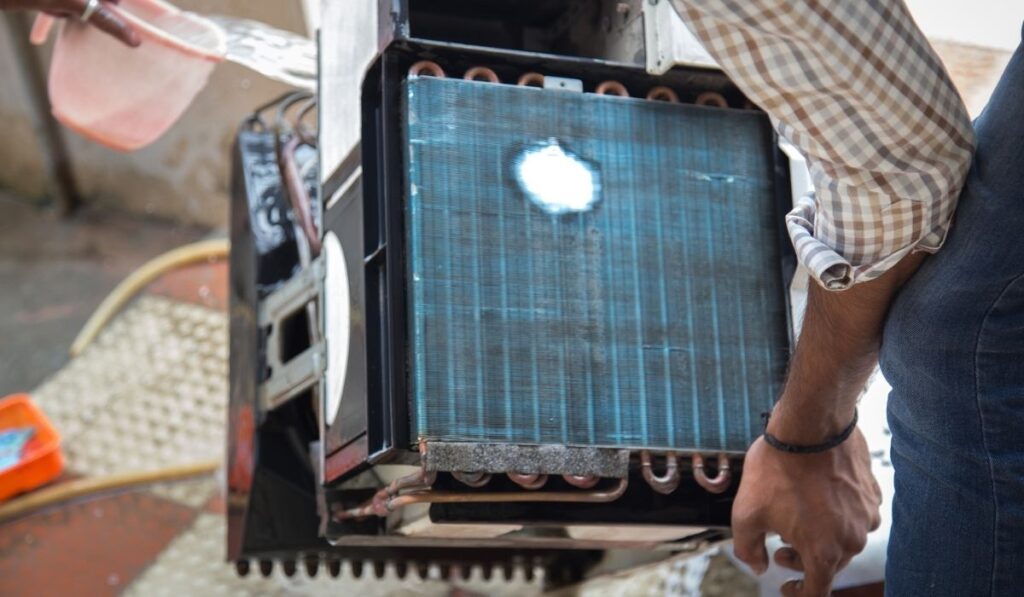Window air conditioning units are specifically designed to combat the heat during the hotter months of the year. But what happens when winter comes around? Can you still use your window AC unit?
Running a window AC unit during colder months could cause damage to the device. The lubricating oil could become sticky or freeze. It’s best to carefully remove and store the unit if possible or use a protective cover if removal isn’t an option.
Let’s take a closer look at what could happen if you use a window AC unit in the winter and how you can store yours safely instead.
Is It OK to Run a Window Air Conditioner in the Winter?

Unfortunately, using your window AC unit in the winter is not suitable for the device. Nonetheless, some scenarios may require you to power it up during these times.
For example, if you want to test out the unit because the house is for sale or the room is for rent. Or maybe if you’re going to check whether the AC is still working after a long period of sitting unused.
You can follow some precautions when using your Window AC during winter, but keep in mind that winter use is still not a great idea.
A window AC unit works by processing the air from the room in which it’s installed. As it sucks in the hot air from the room, the thermostat is triggered to transform the hot air to cool air with the help of its refrigerant coils. Then, the hot air is dumped outside.
It’s not advisable to turn on your window AC unit if the temperature outside is less than 62 degrees Fahrenheit. Doing so will pose a risk to the health of your unit.
Can a Window AC Unit Freeze in Winter?
Yes, a window AC unit will freeze in winter. Inside the unit is a lubricating oil that helps in the process of making the air cool. That lubricating oil is heavy grade and works best in hot temperatures.
If you use the unit during colder days, there is a high probability that the lubricating oil will become sticky or freeze. In this case, it could also freeze the mechanical parts inside.
When an electrical part is melted or frozen, the unit may be beyond repair — or at least very expensive to repair.
What Should You Do With a Window AC Unit in the Winter?

Seeing how harmful it is for your window AC unit to be used in the winter season, you should care to protect it. You have two choices — either you remove the unit from the window and store it, or you can insulate it while it’s still mounted.
Removing the Window Air Conditioning Unit
To remove the unit properly, you should seek help from a friend or two. It’s best not to try to do this on your own. Aside from being heavy, the unit must be level at all times to avoid the inside parts from getting misaligned during the removal.
Also, if you do this alone, there is a high chance that physical problems such as backaches or fractures will result. Removing the unit is easy as long as you have all the help you need.
Watch Out for Dripping Water
If the unit has been used recently before, there is most likely still water left inside. In this case, it would be best if you avoided it from spilling all over the place by preparing a cloth or a rug under the AC. You can also ready a mop or a bucket if it drips too much.
The cloth will also help prevent any possible dents or scratches when placing the AC unit on the floor.
Cleaning the Window AC
Before you store your AC unit, you should clean it. You can start by removing the filters. Clean them using a spray gun to remove all the dirt in the filter grills.
If you don’t have a spray gun available, you can clean them using a brush and soap. After the cleaning process, let the filters dry completely before reinstalling them back to the unit.
In addition, you should also clean the water pans and the exterior of the window AC. You can clean those parts just as you cleaned the filters. Furthermore, you can also use the same vinegar solution.
To help the unit dry completely, you can wipe it dry with a rag or absorbent cloth.
Storing the Window AC
Once thoroughly cleaned and dried, you can now store your AC unit. It’s recommended that you use the original packaging, if you have it, to ensure a perfect fit. But if you have disposed of the original packaging, you can look for other similar boxes that might work.
If the box is too big, fill the bottom with layers of styrofoam or something else that can cushion your unit. This is to avoid direct impact in case it’s dropped.
Then make sure the unit is placed in the center and fill in the remaining gaps with bubble wrap, paper, cartons, or styrofoam to keep everything in place.
Now you can seal the box and cover it with plastic to prevent dust and moisture from getting inside.
Make sure that you store the AC in a place with no threats of falling objects, water, or other potential damage. If possible, don’t put anything above it, be it a light or heavy material. This is to avoid damage to the inside parts cramped due to the load.
Insulating the Window AC
If you can’t remove the window AC unit for any reason, you can insulate it instead.
You’ll have to look for a blanket, quilt, or both to cover the AC. There are also specially designed AC coverings, like the KylinLucky Window Air Conditioner Cover (on Amazon).
These coverings are a great option since they fit perfectly with the AC size. Ensure that the whole unit is well protected to prevent the cold air from reaching the unit.
It’s also a good idea to seal the edges to avoid water dripping down from thawing snow or rain from entering inside. Even if you’ve completely covered your AC unit, check it from time to time to see if the harsh weather conditions have affected or disrupted the way you covered it. You can use tape with extremely durable adhesives to combat snow or rain.
You can also use a box first for extra protection, then wrap it well with a cloth or blanket. If this will potentially be a yearly routine for every winter season, setting up a permanent shed or roofing for your window AC may be a good choice. You can ask for professional help here to ensure that it won’t hinder the function of the AC unit.
